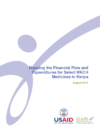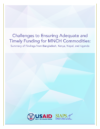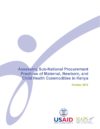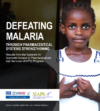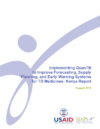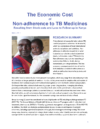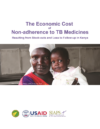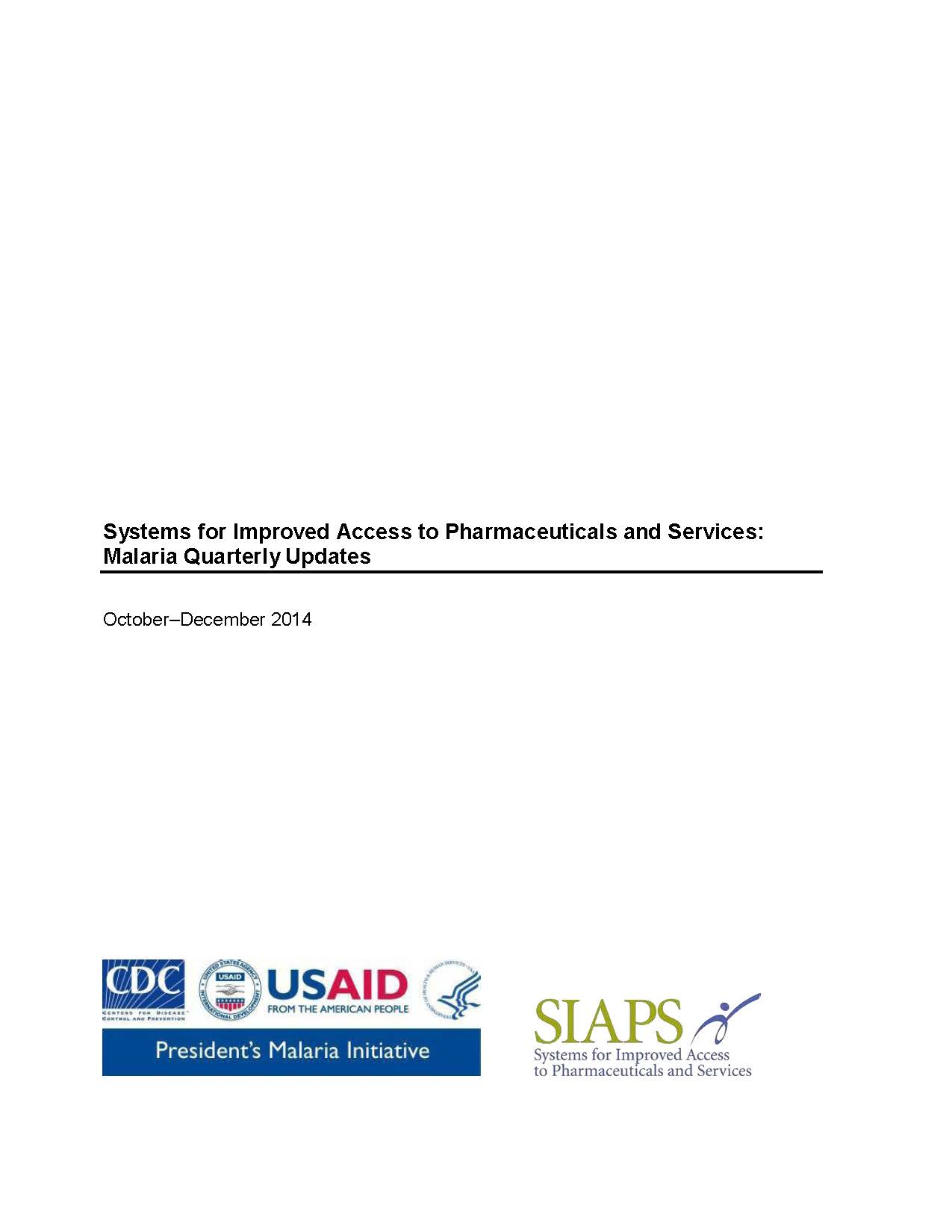Since the report of the United Nations Commission on Life-Saving Commodities for Women and Children (UNCoLSC) was published in 2012, much has been done to highlight the challenges countries face in ensuring the availability of essential commodities and to create resources to assist countries in this endeavor. In most settings, these commodities are procured with government … Read more
As countries pursue the maternal, newborn, and child health (MNCH) targets established under Sustainable Development Goal 3, they will need to ensure the continuous availability of essential health commodities to prevent and treat the conditions that cause morbidity and mortality in those groups. Since the report of the United Nations Commission on Life-Saving Commodities for … Read more
The SIAPS Program works at both the global and country levels to improve pharmaceutical management systems that increase access to quality medicines. SIAPS has developed a methodology to assess sub-national procurement practices. This methodology was used in Kenya to assess county-level procurement practices for essential maternal, newborn, and child health (MNCH) commodities and to study … Read more
SIAPS’ role to control malaria was recently featured in Health & Humanitarian: The Supply Chain Review. Between 2000 and 2015, malaria case incidences declined by 41% and mortality rates by 62%. However, approximately 212 million people were infected and 429,000 people died in 2015, with the majority being children under the age of 5 in … Read more
SIAPS has received funding from the US President’s Malaria Initiative (PMI) to work in eight countries—Angola, Burundi, Democratic Republic of the Congo (DRC), Ethiopia, Kenya, Guinea, Mali, and South Sudan—to strengthen pharmaceutical systems for improved malaria control. This report synthesizes the pharmaceutical systems strengthening efforts of SIAPS and documents how the approach was used to support … Read more
A Clark, A Mwansasu, Angola, Burundi, Democratic Republic of Congo, Ethiopia, Guinea, Kenya, Malaria., Mali, PMI, S Doumbia, South Sudan, Technical Report
SIAPS recently published the results of its activities in eight countries (Angola, Burundi, the Democratic Republic of the Congo (DRC), Ethiopia, Kenya, Guinea, Mali, and South Sudan) to control malaria. This report summarizes systems strengthening interventions that support the prevention and treatment of malaria. With funding from the US President’s Malaria Initiative (PMI) and based … Read more
SIAPS conducted an evaluation of its TB technical assistance and the QuanTB implementation in Kenya. Specific objectives were to determine: Key achievements or results of the SIAPS QuanTB technical assistance in Kenya Experiences and perspectives of the beneficiaries of the NTLD-P Challenges and lessons learned This report summarizes key aspects and results of the analysis for … Read more
One of the key elements of successful tuberculosis (TB) control programs is adherence to treatment, which is a cornerstone of most international and national policies and guidelines. Non-adherence results in increased length and severity of illness, death, disease transmission, and drug resistance. Treatment interruption is often due to patient-related factors—classed as loss to follow-up (LTFU)—but … Read more
One of the key elements of successful tuberculosis (TB) control programs is adherence to treatment, which is a cornerstone of most international and national policies and guidelines. Non-adherence results in increased length and severity of illness, death, disease transmission, and drug resistance. Treatment interruption is often due to patient-related factors—classed as loss to follow-up (LTFU)—but … Read more
According to the 2013 World Malaria Report,1 malaria incidence was reduced by about 31% and mortality rates by 49%in the World Health Organization (WHO) African Region between 2000 and 2012. These substantial reductions occurred as a result of a major scale-up of vector control interventions, diagnostic testing, and treatment with artemisinin-based combination therapies (ACTs). However, … Read more
Amazon Malaria Initiative, Angola, Burundi, capacity building, Democratic Republic of Congo, Ethiopia, governance, Guinea, Kenya, Malaria., Mali, PMI, Quarterly report, South Sudan, Supervision, Supply chain management
